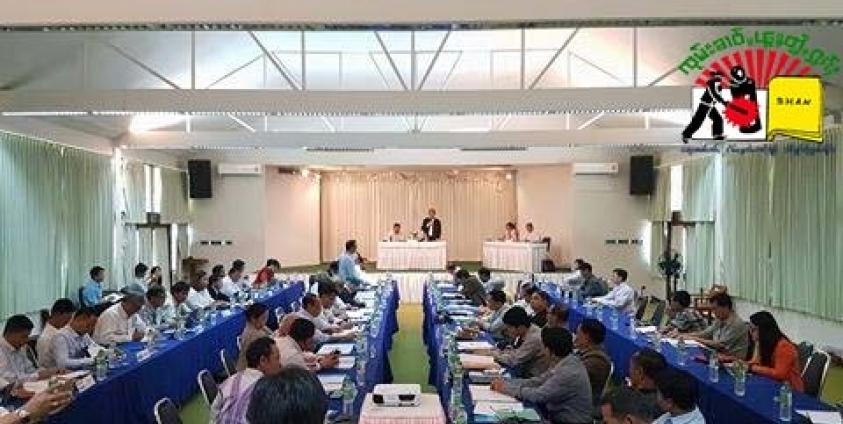If you want to know who’s really running the show in Myanmar, look no further than the Tatmadaw, Lieutenant General Yawd Serk said at a summit this past weekend.
The Tatmadaw may have ceded control of top posts in the administration as part of the transition to democracy, but it’s still steering the country’s course, the Lt Gen said while chairing a meeting of Ethnic Armed Organizations’ (EAO) leaders in Chiang Mai.
“Since the government in our country was elected by the public, the world may see it as a civilian government. In reality, the military government, which has ruled in succession, still holds the power. What we see is two governments ruling the country,” he said.
Relations with the Tatmadaw were one of the key topics up for discussion at the April 8 to 9 summit. Fifteen ethnic armed groups, including both signatories to the nationwide ceasefire agreement (NCA) and non-signatories attended.
Other topics discussed included issues related to national defence policies, frameworks for the political dialogues and several points related to the Union Peace Conferences, styled the 21st-century Panglong Peace Conferences.
The Ta’ang National Liberation Army (TNLA), the Kachin Independence Army (KIA), the Myanmar National Democratic Alliance Army (MNDAA) and the Arakan Army (AA), all members of the Northern Alliance and currently engaged in fighting with the Tatmadaw, were not present at the ethnic summit.
Previous ethnic summits have been held in KIA-controlled Mai Jai Yang, and in Karen National Union-controlled Law Khee Lar.
Translated by Thida Linn
Edited by Laignee Barron







